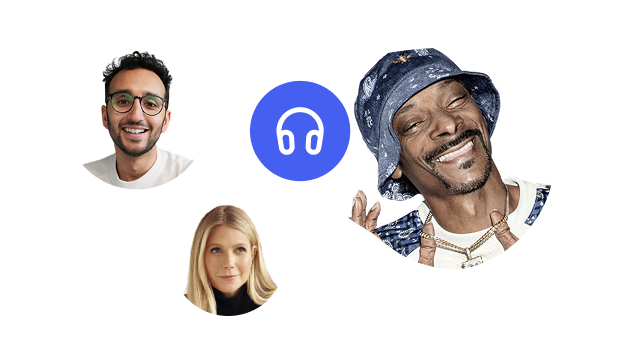The realm of video localization is undergoing a paradigm shift, all thanks to the rapidly advancing AI dubbing software. This generative AI technology is a game changer, helping to overcome language barriers and offering high-quality dubbing for video content, thus making the world of media even more accessible. In this article, we'll delve into the depths of AI dubbing and how it is revolutionizing the dubbing industry.
What is AI Dubbing?
AI dubbing, powered by artificial intelligence and machine learning algorithms, is an innovative process that uses text-to-speech synthesis to translate and dub audio content into different languages. This cutting-edge dubbing technology extends beyond simple machine translation, ensuring the voiceover matches the tone, emotion, and context of the original content.
Can AI be Used for Dubbing?
The answer is a resounding yes! AI technology can be used to dub various types of content, including podcasts, e-learning tutorials, social media videos, and more. It’s not just confined to translating English subtitles to Spanish or Portuguese; AI dubbing services support multilingual localization, catering to numerous languages like Hindi and many more.
Can AI Dub a Video?
AI is capable of not just dubbing audio, but also video content. Sophisticated AI video dubbing software syncs the translated audio with the video’s lip movements, ensuring a natural-sounding and visually coherent result – a process also known as lip sync. This has proven invaluable for content creators, startups, and video editing enthusiasts who regularly work with multilingual video content.
How Does AI Dubbing Work?
At the core of AI dubbing lies generative AI and machine learning. The process starts with transcription, where the original audio is converted into text. This text is then translated into the desired language. Post-translation, the AI uses text-to-speech synthesis to generate the voiceover. Advanced algorithms then work to match the timing of the voiceover with the video's lip movements, providing a seamless dubbing experience.
Dubbing Software Features
AI dubbing software comes with a myriad of features that ensure a high-quality dubbing output. These include real-time dubbing, multilingual support, voice selection for different genders and age groups, customizable speech speed and volume, and integration with video editing tools. Additionally, some software provides additional localization services such as subtitling.
Advantages of Using AI Dubbing
The benefits of AI dubbing are numerous. It enables quick turnaround times, reducing the time-consuming process of traditional dubbing. The localization feature opens up your content to a global audience, breaking language barriers. The affordability aspect is another plus point, especially for small businesses and independent content creators.
Best AI Dubbing Software and Free Options
There are several AI dubbing tools available, each with unique features and pricing models. Here are the top eight:
- Amazon Polly: A cloud service that turns text into lifelike speech using deep learning. It offers multilingual support and provides natural-sounding speech.
- Google Text-to-Speech: An easy-to-use service that offers over 30 voices in various languages.
- IBM Watson Text to Speech: Supports a variety of languages and dialects and provides customization options for speech patterns.
- Microsoft Azure Cognitive Services Speech: Offers real-time transcription and translation capabilities.
- DubVerse (incubator project): A promising startup providing AI-based dubbing services with emphasis on accuracy and emotional nuance.
- VidCon Transcriber: A tool designed for social media content creators, offering transcription and translation services.
- Resemble AI: Provides custom AI voices and offers a free tier with limited usage.
- iFLYTEK Voice Cloud: Chinese company iFLYTEK offers a robust voice recognition and text-to-speech software.
In the rapidly changing digital landscape, AI dubbing software is set to revolutionize content creation and accessibility. By breaking down language barriers, it opens up a world of opportunities for multilingual and multicultural exchanges, paving the way for a truly global content sphere. Whether it's for e-learning, social media, or any video content, AI dubbing is the future of content localization.





